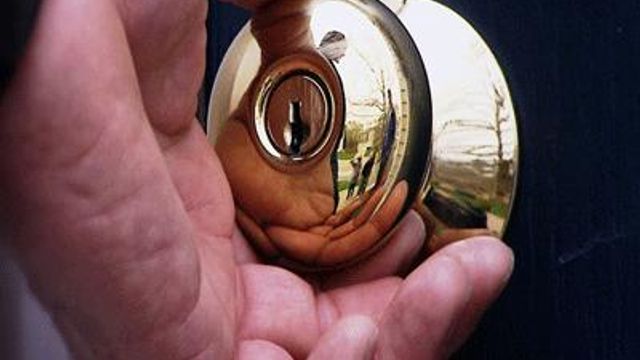Judge halts locksmith scheme in N.C.
The North Carolina Attorney General's Office on Thursday filed suit to prevent a bogus locksmith operation recently exposed by WRAL News from operating in the state.
Posted — UpdatedJudge Paul Ridgeway's temporary restraining order came hours after the state Attorney General's Office filed suit against 704 Locksmith Inc., NC Charlotte Locksmith Inc., Locksmith Service Inc. and two Charlotte residents who are believed to run the three companies. All three firms operate under multiple names, according to the lawsuit.
None of the defendants appeared in court Thursday afternoon, and Ridgeway's order means any employees of the company who pose as locksmiths can be cited with contempt of court.
A WRAL News hidden-camera investigation showed tactics used by the nationwide operation, from phony Internet ads designed to divert customers from legitimate businesses to out-of-state call centers promising low service fees to desperate people locked out of their homes.
Once the operation dispatches its crews posing as locksmiths, however, the price for the service quickly escalates, the WRAL News investigation showed.
Following the investigation, a number of victims of the scheme filed complaints with the Consumer Protection Division in the Attorney General's Office.
"They're not licensed locksmiths. They pretend to be a local company and sometimes adopt names that sound like a local locksmith," Attorney General Roy Cooper said.
Ed Walters, who operates Raleigh Locksmith, was cited in the suit as a businessman who has lost customers to deceptive trade practices. Raleigh Locksmith is one of the names used by 704 Locksmith, according to the suit.
The suit also referred to a Cary woman who was victimized in March when a bogus locksmith drilled out her front-door lock and tried to charge her $215 for the service. The man reluctantly accepted payment by check after she refused to go with him to an automated teller machine to withdraw cash to pay the bill, the suit states.
Cooper said people who are locked out of their home or car are already vulnerable and "to get ripped off on top of that is really just too much."
"Our No. 1 objective ... is to stop them from doing business anymore," he said of the defendants.
The state also is seeking civil penalties of $5,000 against the defendants for each time they used deceptive trade practices. Consumers who have been victimized by the scheme must file a formal complaint to be eligible for any restitution the state collects in the case.
Cooper urged consumers to ask to see a North Carolina locksmith license, which is required by law, when using a locksmith. They also should ask for references, double-check the company's office address and watch out for locksmiths who arrive in unmarked vehicles or without uniforms, he said.
• Credits
Copyright 2024 by Capitol Broadcasting Company. All rights reserved. This material may not be published, broadcast, rewritten or redistributed.






